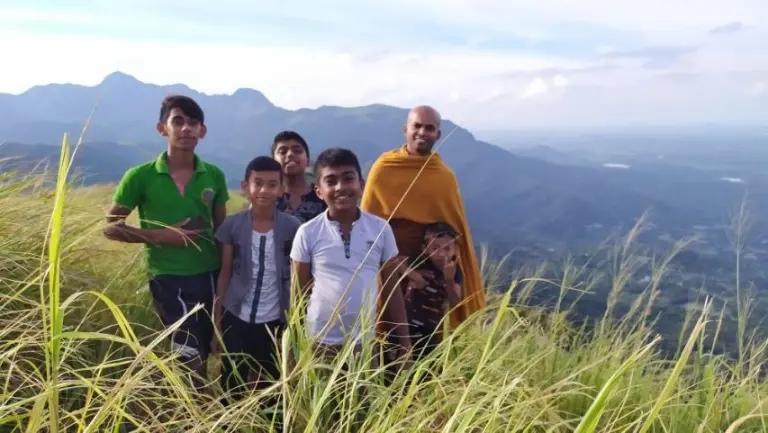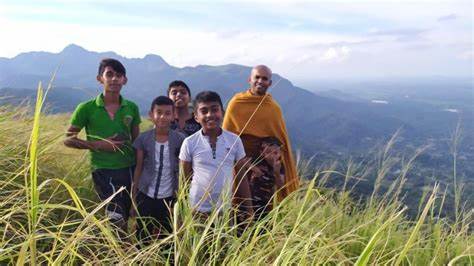Tags


In July 2022, the Sri Lankan monk Venerable Nyanakusala (in Sinhala transliteration Gnanakusala) will reside on Shanta Vana. If you would like to visit the center during this period, it is possible to talk to the Venerable about Dhamma practice or monastic life in Sri Lanka. Please let us know in advance by calling 608341297 or e-mail shantavana@sasana.cz so that we can coordinate the visit with the stay of the monk and other visitors to the center.
If you would like to support the venerable Ňánakusala’s stay, you can do so to the account no. 100865722/2250, IBAN CZ20 2250 0000 0001 0086 572, held at Banka Creditas, in the message for the recipient, mention GNANAKUSALA DANA.
Briefly about the venerable Ňánakusal
Hon. Nyánakusala decided to become a monk already in high school. He was one of the best students, but university studies, career and worldly life were not interesting to him. He worked for a time as a quality controller in a garment factory in Colombo and then entered a monastery.
Tomáš Kulišťák, who invited him to the Czech Republic, got to know the venerable during his two-month stay in Vajirarama Forest Solitude, where he was waiting for his full monastic ordination (i.e. he was supposed to become a bhikkhu – monk from a samanera – novice). Ct. As a lay meditator, ŝánakusala was in charge of Tomáš, so to speak. Ct. Nyánakusala was very friendly and always willing to help. Despite the generally widespread idea that a monk only meditates and does not solve practical problems, the hon. Ňánakusala had a good overview of all the technical equipment of the monastery and always helped Tomáš to solve problems that occasionally arose during my stay. He also knew a lot about Sri Lankan nature and herbs.
Hon. Nyánakusala likes to stay in mountain hermitages or monasteries, away from the hustle and bustle of cities. However, he is not averse to talking to local people who come to him for advice on their problems. Although he is very bright and intelligent, he did not want to devote himself to excessive study of the suttas (canonical texts), their commentaries and other Buddhist literature, but preferred to practice according to the basic, simple principles of the Buddha’s teachings. He was particularly inspired by the approach of the well-known Thai teacher Adján Chá.
In the past years, he had the opportunity to visit monasteries in the surrounding Asian countries – India, Malaysia, Singapore and Thailand, and he is now able to communicate in English well.

